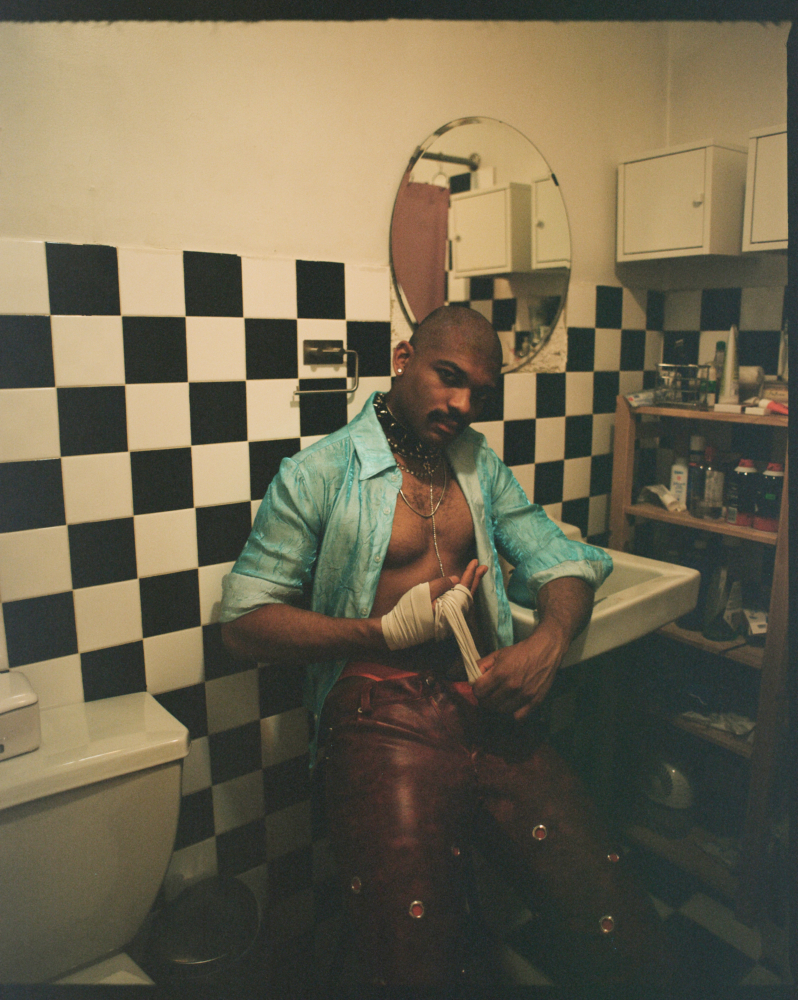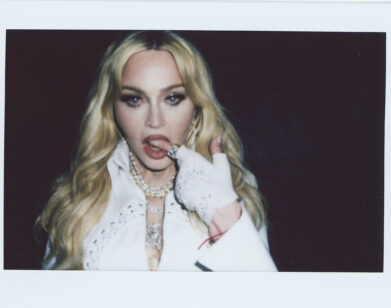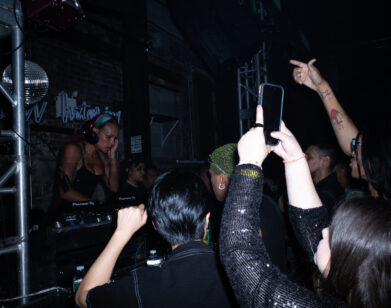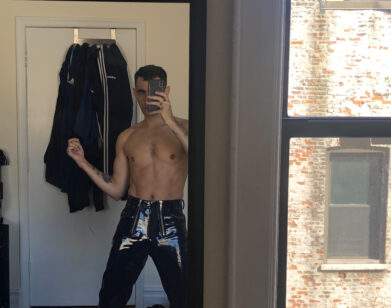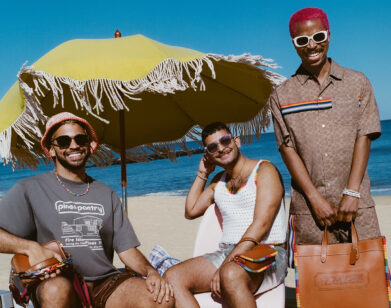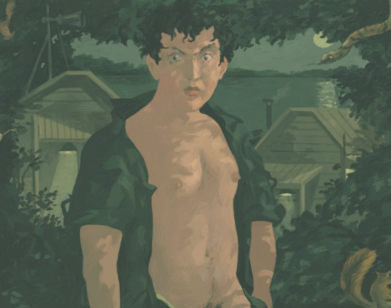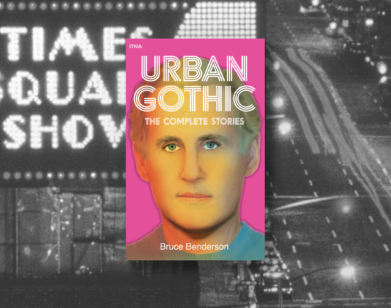Fusilier Gives Us a Pride Playlist to Be Proud Of
This is “Add to Queue,” our attempt to sort through the cacophony of music floating in the algorithmic atmosphere by consulting the experts themselves. Our favorite musicians tell us about their favorite music—the sad, the happy, the dinner party-y, the songs they want played during protests, and more. In this edition, we speak with Blake Fusilier, a Brooklyn-based singer and vocal activist for queer artists of color. After the release of his latest EP Upstream, we asked Fusilier to share with us the songs that remind him of the true spirit of Pride, including his own protest-meets-club cover of the Motown classic “Dancing in the Street.”
———
ERNESTO MACIAS: I listened to “Dancing in the Street.” Why did you decide to cover this Motown classic and turn it into a club song?
FUSILIER: Someone called my music a dance party for the end of the world and I really appreciate that. I would hear it around a lot and I noticed that people don’t react to old music with the original intent. Things that were probably labeled race music are now just innocuous. Things like “I’m Black and I’m Proud” or “Mississippi God Damn” are like brunch music to people now.
I thought I would take a song that was implicitly about social movements, whether it be civil rights of the ’60s or about the rebellious nature of Black joy and make it confrontational. It’s funny because when I originally did it I didn’t think anyone was going to notice and that it wouldn’t be necessarily relevant. It just happened to be released during this new protest movement. So, I think it really speaks to the nature of how repetitive all of these movements are and how these problems aren’t actually being solved.
MACIAS: Does this song take on a different meaning now, or hows’s that been for you?
FUSILIER: It makes it a lot more tangible because, you know, Lady Gaga’s Chromatica came out and I was expecting this Pride month to feel like the other ones. Or, for it to feel like the Pride month when gay marriage was legally recognized by the Supreme Court. It was going to be this celebration that would paper over underlying social problems, especially within the queer community. It’s unfortunate that it’s relevant, but it’s sort of strange to feel like there was maybe this zeitgeist and this sort of underlying malaise that I felt that other people also felt.
MACIAS: What is the last song you listened to?
FUSILIER: I listen to so much that’s sent to me. I think, probably Lotic‘s new single that I am putting on my playlist. It’s super cool, I’ve been following them for a while and was pleased to hear that there was some new music.
MACIAS: What stuff have you been listening on repeat since the world went on shutdown? Is there anything that you keep going to particularly?
FUSILIER: My old standbys. Typically a lot of Solange. Music that comforts me, which is kind of like sad boy music. So, I’m finding Coldplay again. When I was a kid, those first two albums really touched me and they hold up.
MACIAS: Any particular song that you remember from those two albums that you’ve been listening to?
FUSILIER: “A Rush Of Blood To The Head.”
MACIAS: Who was the earliest musician to influence you?
FUSILIER: I think my first “wow” moments were all the Missy [Elliot] and Timbaland stuff. Whether that be like Timbaland & Magoo or Missy or Aaliyah, all that stuff was incredible and I still go back to it.
MACIAS: Do you remember what your first concert was and where it was?
FUSILIER: Believe it or not, I think it was Papa Roach.
MACIAS: Whoa.
FUSILIER: I was not in high school and some older high school kids somehow invited me to this free concert in downtown Atlanta that I think the alternative station used to put on. So, I saw Papa Roach and I don’t really remember it. I wonder if it was good or not but I just remember being excited to hang out with older kids.
MACIAS: That’s a wonderful answer. Do you remember the first music video to leave an impression on you?
FUSILIER: I remember the first moment that I became aware of music videos. I was at my grandma’s house and we were flipping through channels. And there was this video of Prince in a bathtub that I got to watch for five seconds before my grandma noticed and flipped the channel. I think if she had not changed the channel I wouldn’t have thought anything of it, but seeing her reaction to it, I was like, “That’s interesting.” Like, “Why did she react to that? Who was that man?”
MACIAS: Do you have a favorite movie soundtrack?
FUSILIER: I’m more of a score person. I can remember my favorite soundtrack song might be that Destiny’s Child, Timbaland collaboration, “Get On The Bus.” But I think I’m more of a score person. My favorite one is probably Hans Zimmer’s Inception score.
MACIAS: Who is your dream collaborator of all time?
FUSILIER: It’s so hard. I want to say Thom Yorke, but I honestly just think that men are boring. So, probably Björk.
MACIAS: [Laughs] I agree with you on that. What is the song that always puts you in a happy mood?
FUSILIER: There are a lot of songs. I would say “Apocalypse Dreams” by Tame Impala. With that piano, it’s amazing. Songs that put me in a good mood are always a little bit sad because I read happy, happy music as disingenuous. But something that can be happy in spite of itself is my jam.
MACIAS: Why do you read happy music as disingenous?
FUSILIER: It’s hard for me to know that you’re really enjoying the moment, that you’re really happy if I don’t hear that you know that it’s temporary.
MACIAS: What music makes you feel safe?
FUSILIER: Probably orchestral music. Like a Tchaikovsky ballet, The Nutcracker. I forget what passage it is but it has this rising clarinet line where it feels like you’re kind of floating. I feel like we associate safety with being in the womb or being dead and floating into heaven. So, it feels like you’re floating, suspended in the air. Nothing can hurt you.
MACIAS: What songs would you put on a cooking dinner playlist?
FUSILIER: I like standards for cooking. So, Dionne Warwick is good. And then I think Antônio Carlos Jobim, the Brazilian composer—”Aguas de Marzo” is aways good radio to put on.
MACIAS: What about a playlist for getting high?
FUSILIER: I’m going to keep it real and say Lil’ Wayne. Like, The Carter Three—I think that’s when I really started to smoke. But also “Spottieottiedopaliscious” is really good.
MACIAS: That’s an old one but a good one; it always does it. What album or song takes you back to your youth?
FUSILIER: Oh man, so much. Maybe Anita Baker’s “Rapture of Love.”
MACIAS: If your life was a TV show, what would be the theme song?
FUSILIER: I was just thinking about that. Maybe “Steve Polyester” by Ava Luna. I always walk around with music on and I’m just thinking about what I would use to score my own biography.
MACIAS: Which song or album reminds you of the true meaning of pride—not the parties and all that stuff.
FUSILIER: Oh man, “I’m Every Woman.” It reminds me of when I first started going out in Atlanta too. Everybody, keep marching.
MACIAS: What’s a good song to get hyped up for marching? What would you recommend?
Fusilier: “Be Thankful” by William DeVaughn, maybe. There’s something about ’70s soul. I know people want to give raucous answers, but there’s something about the core of ’70s soul that’s about self-pride and self-love. I think that that’s what protests should be centered on. It shouldn’t be centered on anger, it shouldn’t be about anti; it should be about pro-me because I think that it’s more sustainable.
Listen to Blake Fusilier’s “Gay Guerilla” playlist below, and follow Interview on Spotify for more.

